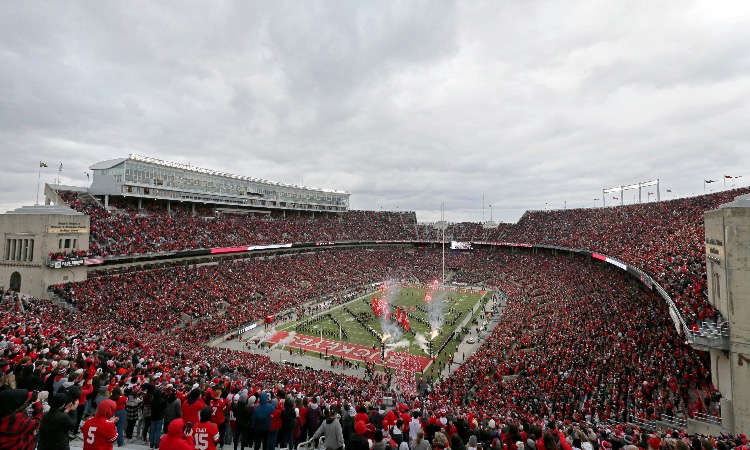Ohio State University has expressed concerns about sports betting impacting the “student body” and is asking for some restrictions on the type of bets that will be allowed in Ohio.
Stacy Rastaukas, OSU’s vice president for government affairs, delivered a letter in late January to the Ohio Casino Control Commission identifying some concerns about sports betting and asking the commission to consider implementing specific restrictions on the type of collegiate bets allowed.
“Our principal concerns are for the ongoing safety and well-being of our student-body,” Rastaukas stated in the letter. “Both athlete and non-athlete students will be exposed to undesirable behaviors surrounding wagering on collegiate events, and we must work together to ensure the best outcome for both our student population and the state of Ohio.”
Putting parameters on sports betting
OSU’s recommendations to the commission included limiting collegiate sports wagering to only football and basketball; limiting collegiate wagers to only the outcome of the game and not prop bets; omitting club sports from sports wagering; and establishing enhanced penalties and enforcement for coercion and cheating.
Sports betting was legalized in Ohio on Dec. 22 when Gov. Mike DeWine signed HB29. The commission, which is responsible for establishing the sports betting platform in Ohio, is still in the process of finalizing the state’s rules for sports betting. The law states that sports betting must be launched by Jan. 1, 2023.
The commission has rolled out five batches of proposed sports betting rules, three of which have been formally submitted to the Common Sense Initiative (CSI) office. Prior to the commission submitting any batch of proposed rules to CSI, stakeholders are given two opportunities to comment on them. OSU reportedly has been the only university to submit stakeholder comments.
#Ohio continues to plug along in its quest to launch sports betting by year's end with the shipping of its latest batch of rules, reports @hoosier3232 https://t.co/g1e3cjGwLE @BetsOhio
— US Bets (@US_Bets) April 6, 2022
OSU’s request to the commission to limit sports betting solely to football and basketball seems the most unusual among the list. Should the commission agree, that would eliminate potential betting on non-revenue collegiate sports like baseball, softball, track and field, and tennis.
OSU not alone with sports betting concerns
OSU is not the first university to express concerns about sports betting potentially impacting its student body. Purdue University was concerned about sports betting at the outset of sports betting in Indiana back in 2019, and university officials set a policy prohibiting faculty, staff, students, and contractors from betting on sporting events involving Purdue athletic teams. The decision, officials said, was premised on giving student-athletes space to have a normal college experience, recognizing that they’re not professional athletes.
Villanova and St. Joseph’s invoked similar prohibitions once sports betting became legal in Pennsylvania.
Among the 30-plus states that offer some form of sports betting, the following have some type of restriction related to wagering on in-state college teams: Connecticut, Delaware, Illinois, Maryland, New Hampshire, New Jersey, New York, Rhode Island, South Dakota, Virginia, Washington, and Wisconsin.
Indiana, Colorado, Iowa, and Tennessee are among a group of states that allow wagering on college sports, but which prohibit prop bets on college sports. Oregon has sports betting, but bans wagering on all college sports.
NCAA rules have long been in place prohibiting college student-athletes and athletic department faculty members from engaging in sports betting.










